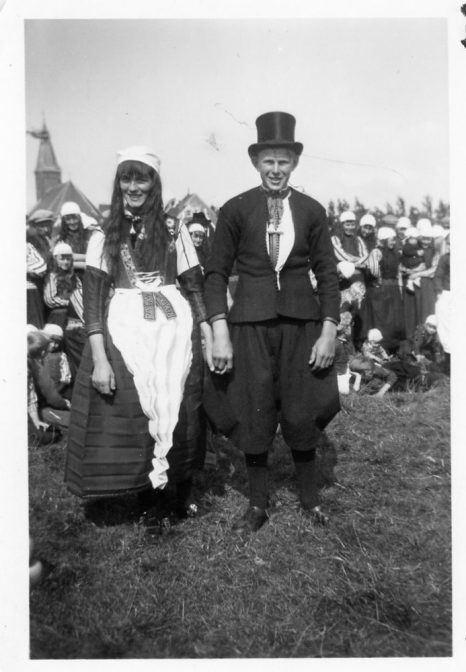A moetje is a situation where a couple married because the bride was pregnant; a shot-gun wedding in modern terms. “Moeten” is the verb “must” and “-je” is the diminutive form. So the marriage was a “bit of a must.”
Customs were different in different areas and among different social classes. Among laborers in Friesland, it was quite common to hold off marriage until the girl was pregnant. But among farmers in Gelderland, most children were born at least nine months after the wedding.
By studying the whole group of people, you start noticing patterns like this. Groups that had a higher percentage of pregnant brides can also have a higher percentage of children born out of wedlock. If your ancestor was born out of wedlock in an area where many brides were pregnant, it could be that the girl was promised marriage but the boy did not follow through. The church council minutes might have something to say about that.

Bridal couple in Marken. Credits: Marker Museum, via Open Cultuurdata (CC-BY-SA)


My ancestors are almost exclusively from Friesland, Groningen, Noord Holland, and Zeeland. A short while ago I did a calculation and found that about 20% of the women who married were either pregnant or had a child out of wedlock. Acknowledgement of children born to the couple out of wedlock is often recorded in the marriage certificate.